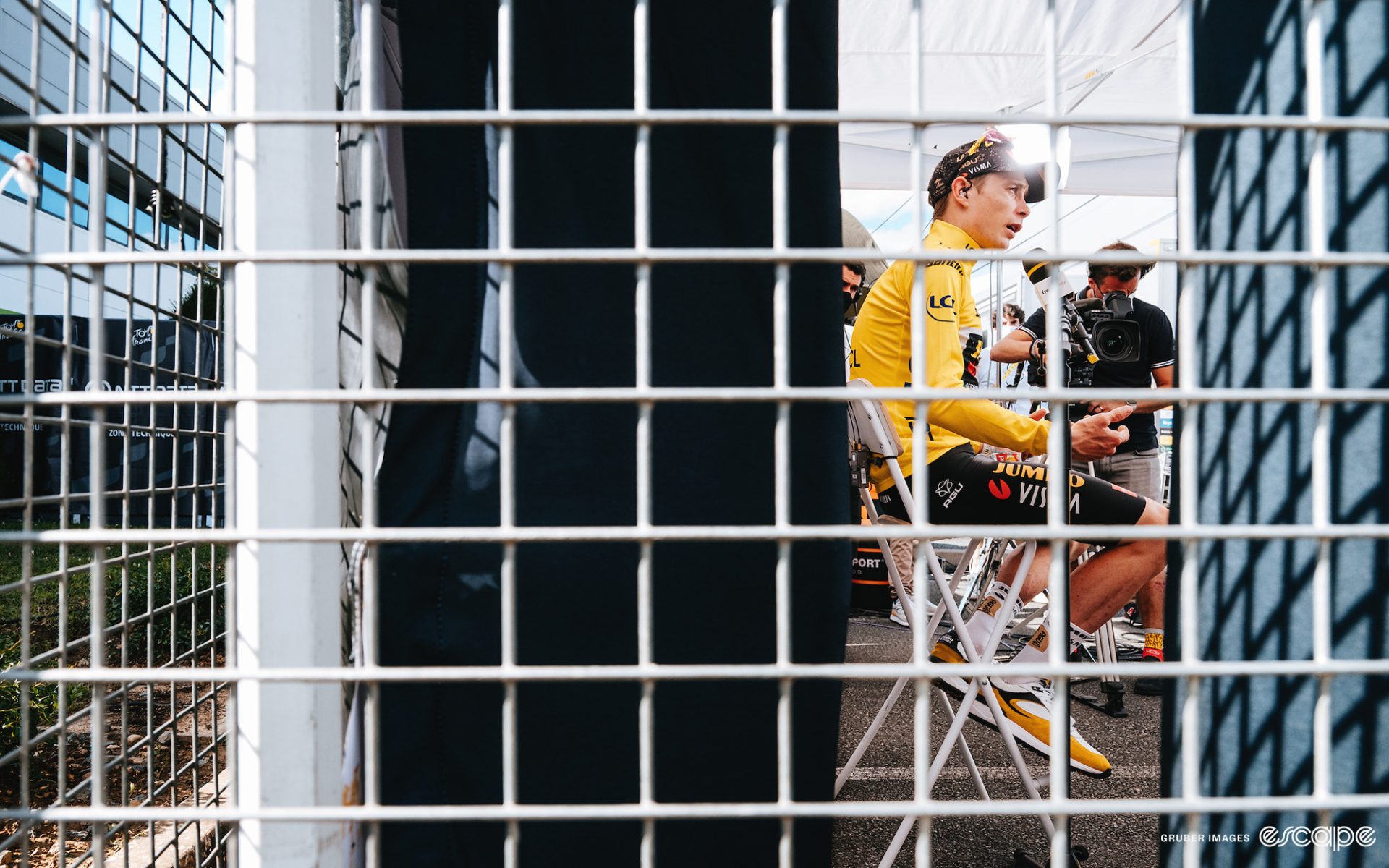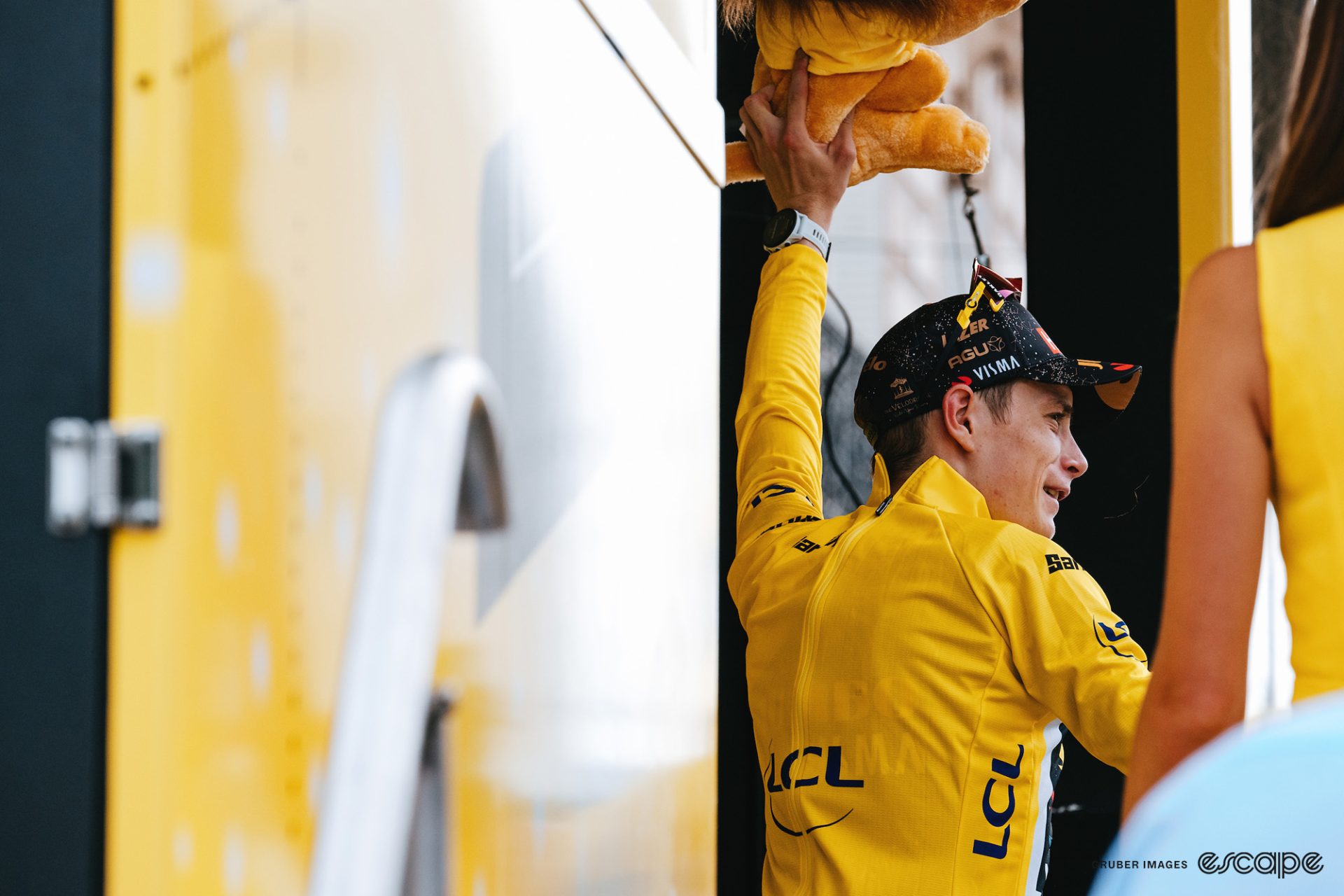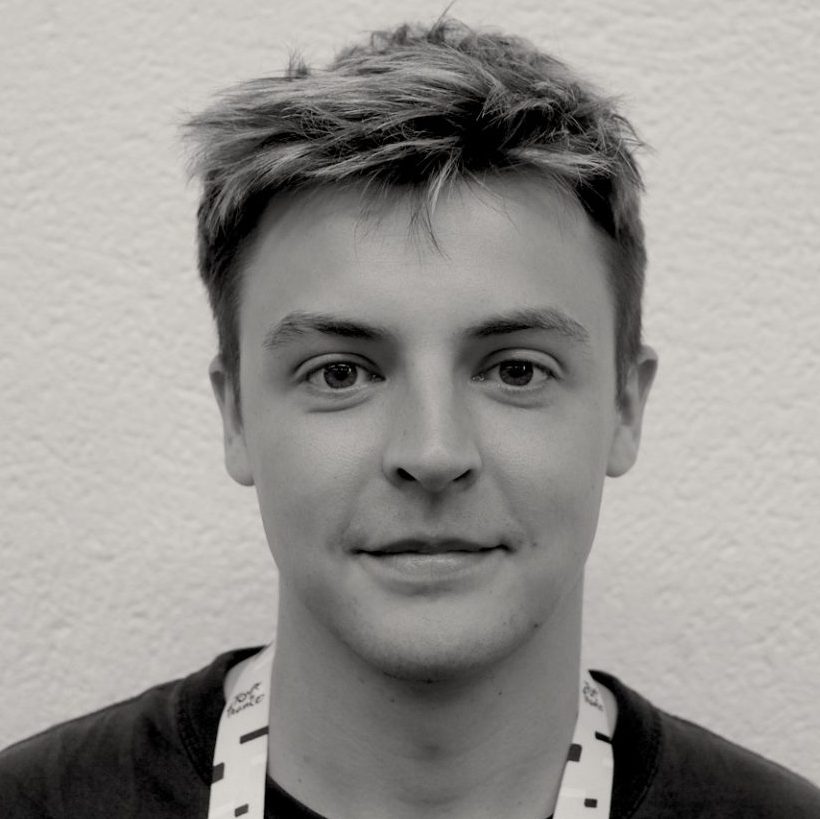Pro cycling’s history is inescapable, the vestiges of those ugly decades can still be found in contract clauses between sponsors and teams designed to protect sponsors in the event of systemic doping within a squad. These clauses go both ways, though, as they lock in sponsors until a certain threshold is reached.
We have been made aware of a kill clause in some of Jumbo-Visma’s sponsorship contracts that allows a sponsor to leave only after three positive doping tests, one more than the two positive tests that result in a team being automatically suspended from competition by the UCI. In this scenario, the team can be sidelined from racing and facing serious questions about their conduct while the sponsor is still on the hook for financial support.
The existence of this three-strike clause was confirmed to Escape Collective by Jumbo-Visma team officials, and we understand its inclusion is at the behest of the team.
Jumbo-Visma clarified that while there are instances of three-positive contract agreements amongst their various deals, the number of specified positives differs from contract to contract, with some not having any doping clause, while others align in with the UCI limit of two. For some sponsors, even one positive would be too much for them to continue their association.
The number-specific doping positive clause is also referred to as “collective” doping, meaning at least three riders on the team are involved in doping within the same year. The term used more often in cycling media is systemic doping, on the assumption that a team with three positives in a single year has an internal program dedicated to cheating. UCI anti-doping rules state an automatic 15- to 45-day team suspension if two riders test positive within any rolling 12-month period.
Many teams have broader morality clauses (sometimes called moral turpitude) in their contracts, whereby sponsors are able to pull out of an agreement due to a variety of possible malfeasances, including doping positives, while other teams also have specific doping clauses aligned to the UCI suspension language.
The existence of these clauses are not suggestions of wrongdoing or exoneration, merely the reality for modern teams and sponsors, who have no choice but to exist in the context of the history of the sport.
These clauses are of course important protection for teams as well as sponsors. They can’t control what all 31 riders in their squad are doing in their own time, and these contract stipulations prevent a rogue actor from taking down an entire professional outfit employing dozens of people. In some cases, Jumbo-Visma’s specific-number clause appears to just be part of their standard commercial contract, not discussed as a point of interest.
As is always the case with Tour de France dominance of the kind Vingegaard has displayed this Tour, questions are asked of whether what we’re seeing can be trusted – scepticism that Vingegaard himself said was a good thing. Vingegaard has spoken with more clarity on the topic of doping than most other yellow jerseys in recent history, both accepting that doubt is natural and using the word “clean” to describe himself.
After stage 17, when asked again whether we could trust the performances of Jumbo-Visma, Vingegaard said, “For me, it’s hard to tell what more you can say. I guess, I understand that it’s hard to trust in cycling with the past there has been. But I think nowadays everyone is different than they were 20 years ago. And I can tell from my heart that I don’t take anything. I don’t take anything I would not give to my daughter, and I would definitely not give her any drugs.”

Before the start of the queen Col de la Loze stage 17, the day after Jumbo-Visma’s yellow jersey Jonas Vingegaard took a minute and a half out of Tadej Pogačar in the 22 km-long time trial even as UAE Team Emirates’ Tadej Pogačar himself finished more than a minute clear of the rest of the field, both teams were subjected to extra blood tests on their bus.
The Jumbo-Visma boss, Richard Plugge, also welcomed the extra blood tests before the queen stage. “I applaud this,” Plugge said of the extra blood tests. “In fact, I also worked hard for this. In this way we are taking another step in the fight against doping. Jonas Vingegaard has had no less than four blood tests in the last 48 hours. We are happy to participate in this.”
When we contacted UAE Team Emirates, Jumbo-Visma’s main rivals at the Tour de France, about the doping clauses in their commercial contracts, the team declined comment, citing non-disclosure agreements signed with sponsors about said contracts which the team said prevents it from sharing information on the existence of any doping clauses.
These clauses signal the continued reality of bike racing as well as the ongoing trepidity for commercial sponsors to engage with a sport that admittedly speaks more openly about doping than many others. What remains a mystery, however, is what sponsor would be okay with continuing to fund a team that was unable to race due to two or more of their squad members getting popped?
Did we do a good job with this story?

